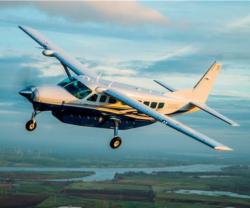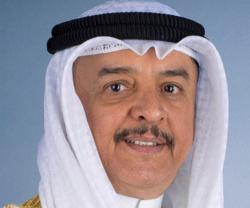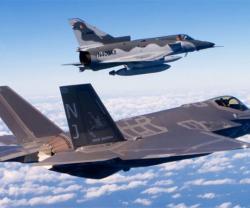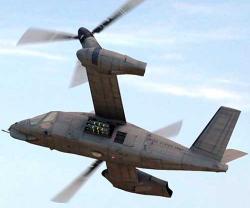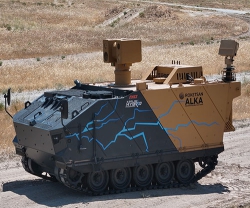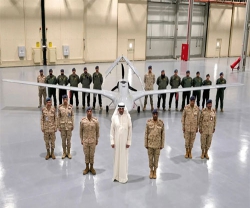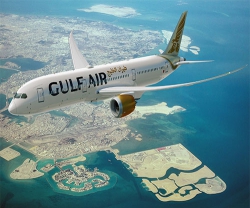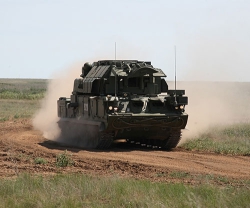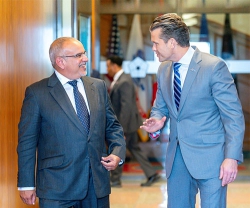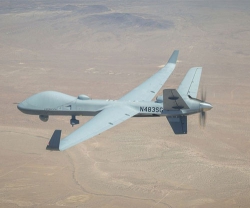Aviation Supports $8bn of Saudi GDP
18.10.2012 Aviation Space
Aviation and aviation-enabled tourism accounts for 3.2% of Saudi Arabia’s GDP and 3% of employment in the Kingdom of Saudi Arabia, according to a new study.
The study was commissioned by IATA and completed by Oxford Economics. It was presented to Prince Fahd Al Abdullah, who is President of the General Authority for Civil Aviation (GACA) and Chairman of the Board of Saudi Arabian Airlines, by Tony Tyler, IATA’s Director General and CEO, who visited Saudi Arabia this week.
Aviation supports 1.8% of Saudi Arabia’s GDP, equal to SR30.2 billion ($8.05 billion) annually and the sector provides work for some 152,000 people in the Kingdom. The productivity of these jobs is 1.8 times higher than the average for Saudi Arabia, the study said.
Aviation-enabled tourism in the Kingdom employs a further 139,000 people and supports some SR23.6 billion of economic activity annually.
“Aviation is a force for good in our world. The industry has turned our planet into a global community by connecting people to business, bringing products to markets, facilitating journeys of discovery and uniting families and friends. This has a significant economic impact”, Tyler said.
Globally, aviation provides employment to some 57 million people and supports $2.2 trillion in business.
During his visit, Tyler also met with Saudi Arabian Airlines Director General Eng Khalid Almolhem, Executives of Saudi Arabian Airlines, and government officials. Topics of discussion included further liberalization of airspace and the development of Saudi Arabian Airlines and aviation in the Kingdom.
IATA also concluded agreements to accredit Saudi Arabian Airlines’ training centers as authorized training centers of the IATA Training and Development Institute. This is a significant step for the development of aviation’s human capital in the region.
Tyler also noted the intent by the government of Saudi Arabia to enable an e-customs platform, and hoped this could lead to a phased implementation and eventually facilitate full implementation of e-Freight in Saudi Arabia.
“Aviation is a critical component of the Saudi economy. Saudi Arabia’s 27 airports handle over 54 million passengers annually, and the numbers are growing at double-digit pace. The aviation investments made in the Gulf region in recent years shows the vital role aviation can play in building and diversifying economies. The new King Abdulaziz international airport project is a good example of such important investment. It is essential that the Saudi government continue with those policies to support the efficient development of connectivity by avoiding unreasonable taxes and onerous regulation, and building sufficient infrastructure,” said Tyler.
The study was commissioned by IATA and completed by Oxford Economics. It was presented to Prince Fahd Al Abdullah, who is President of the General Authority for Civil Aviation (GACA) and Chairman of the Board of Saudi Arabian Airlines, by Tony Tyler, IATA’s Director General and CEO, who visited Saudi Arabia this week.
Aviation supports 1.8% of Saudi Arabia’s GDP, equal to SR30.2 billion ($8.05 billion) annually and the sector provides work for some 152,000 people in the Kingdom. The productivity of these jobs is 1.8 times higher than the average for Saudi Arabia, the study said.
Aviation-enabled tourism in the Kingdom employs a further 139,000 people and supports some SR23.6 billion of economic activity annually.
“Aviation is a force for good in our world. The industry has turned our planet into a global community by connecting people to business, bringing products to markets, facilitating journeys of discovery and uniting families and friends. This has a significant economic impact”, Tyler said.
Globally, aviation provides employment to some 57 million people and supports $2.2 trillion in business.
During his visit, Tyler also met with Saudi Arabian Airlines Director General Eng Khalid Almolhem, Executives of Saudi Arabian Airlines, and government officials. Topics of discussion included further liberalization of airspace and the development of Saudi Arabian Airlines and aviation in the Kingdom.
IATA also concluded agreements to accredit Saudi Arabian Airlines’ training centers as authorized training centers of the IATA Training and Development Institute. This is a significant step for the development of aviation’s human capital in the region.
Tyler also noted the intent by the government of Saudi Arabia to enable an e-customs platform, and hoped this could lead to a phased implementation and eventually facilitate full implementation of e-Freight in Saudi Arabia.
“Aviation is a critical component of the Saudi economy. Saudi Arabia’s 27 airports handle over 54 million passengers annually, and the numbers are growing at double-digit pace. The aviation investments made in the Gulf region in recent years shows the vital role aviation can play in building and diversifying economies. The new King Abdulaziz international airport project is a good example of such important investment. It is essential that the Saudi government continue with those policies to support the efficient development of connectivity by avoiding unreasonable taxes and onerous regulation, and building sufficient infrastructure,” said Tyler.
Latest news
Latest events
IDEF 2025 Turkey - International Defence Industry Fair
22 - 27 Jul 2025Istanbul Expo Center - TurkeyDSEI 2025
09 - 12 Sep 2025Excel, London - United KingdomIntersec Saudi Arabia
29 Sep - 01 Oct 2025Riyadh International Exhibition & Convention Centre - Saudi ArabiaDubai International Air Chiefs’ Conference (DIACC 2025)
16 Nov 2025Atlantis, The Palm Dubai - United Arab Emirates


